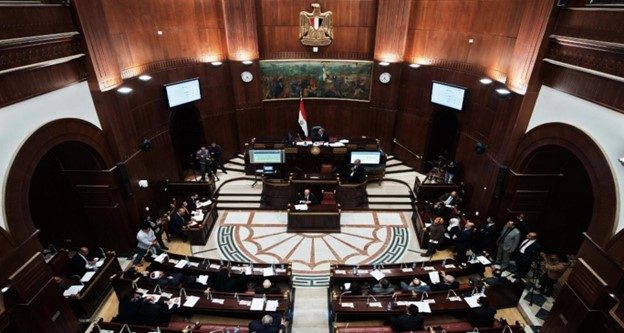
Amid exacerbation of the dire economic situation in Egypt, the Senate deputy speaker demands collection of a percentage of the income of Egyptians working abroad for the benefit of the state.
Deputy of the Egyptian Senate Counselor Bahaa Abu Shoqqa has called for allocation of a percentage of Egyptian expatriates’ pay to the Egyptian state, on a compulsory basis, as reported by the Nabd platform, citing Veto newspaper.
Abu Shoqqa asked for regulating the work of Egyptians abroad, so that there would be a specific legal system, with a mechanism of work abroad by Egyptians, including data about their salaries, to enable the government to impose allocation of a percentage of their income to the state.
Also, the Rassd News Network tweeted, stating: Senate deputy demands collection of a percentage of the pay of Egyptian expatriates, adding, “Bahaa Abu Shoqqa, Deputy of the Senate:
“The state has the right to impose collection of a percentage of the pay of every Egyptian citizen working abroad, because the state is the one that brought up and educated him.”
This came during a Senate plenary session, chaired by Counselor Abdel Wahhab Abdel Razek, to discuss a request submitted by Representative Hiam Farouk Benyamin, demanding clarification of the government’s policy related to the incentives offered for the Egyptians working abroad, and promotion of initiatives and procedures that would contribute to boosting their savings at home and taking care of the interests of Egyptian citizens all around the world.
Abu Shaqqa said that the allocation of this percentage (of the income of Egyptians abroad to the state) is one of the state’s rights due on citizens, taking into account that they were brought up in Egypt and benefited from the services provided by the state to Egyptian citizens.
The Senate deputy added that controlling the work system of Egyptian expatriates is required, a system that should be similar to the work system of citizens at home.
Economic Woes
The Egyptian economy has come under severe pressure over the past year, with the Egyptian pound tumbling, foreign currency drying up, and inflation soaring.
The national currency lost nearly half its value in less than a year, reaching a historic low of 30+ Egyptian pounds to the dollar early January.
The annual inflation has soared to more than 25 percent and grocery stores are visibly becoming more empty.
Many imported products are not available any more due to the drying up foreign currency, and basic foods, such as eggs and cooking oil, have doubled in price.
Some of the causes date back decades, such as failed industrial development and export policies that created a persistent trade deficit.
An over-valued currency, weak property rights and institutions, and an overbearing state and military have deterred investment and competition. Subsidies – though now reduced – have long drained the budget.
Foreign investment outside the oil and gas sector has been paltry, leaving receipts from remittances, Suez Canal transit fees and tourism to play a crucial role.
Egypt’s Abdel Fattah al-Sisi often blames turmoil following a 2011 uprising and rapid population growth — the World Bank put annual population growth at 1.7% in 2021 — for the country’s economic struggles. Since 2020, authorities have pointed to external shocks including the COVID-19 pandemic and the war in Ukraine.
But analysts also cite policy missteps including costly defense of the Egyptian pound, a dependence on fickle foreign portfolio investments, and a failure to carry out structural reforms.
Since March 2022, Egypt’s pound has depreciated by nearly 50% against the dollar. An acute dollar shortage has suppressed imports and caused a backlog of goods at ports, with a knock-on effect on local industry.
Annual headline inflation surged to 25.8% in January, the highest level for five years, according to official data. Prices for many staple foods have risen much faster.
Official data classified about 30% of the population as poor before COVID-19 struck, and analysts say numbers have risen since then. As many as 60% of Egypt’s 104 million citizens are estimated to be below, or close to the poverty line.



